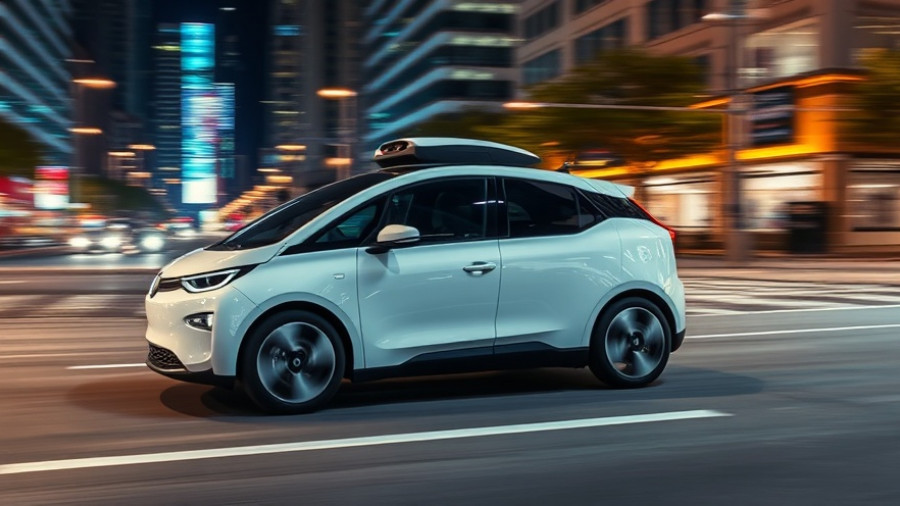
Waymo's Expansion: The Road Ahead for Autonomous Ride-Hailing
Waymo, the self-driving service from Alphabet, has announced an ambitious plan to launch its fully driverless ride-hailing service in London by 2026. With this expansion, Waymo aims to bolster its presence in major international markets beyond the U.S., and it comes on the heels of various challenges faced by the autonomous vehicle sector in terms of commercialization and adoption.
Why London? A New Market for Autonomous Innovation
Waymo's choice of London as its next stop is notable for several reasons. The city is not only a hub of transportation but also a testing ground for innovative technologies. UK authorities are keen on promoting autonomous vehicles as part of their push toward smarter and greener urban infrastructure. The partnership with Moove, a vehicle financing firm, indicates that Waymo is taking a systematic approach to scaling its operations, ensuring that financing, fleet operations, and regulatory approvals are aligned.
What's Different This Time? Learning from the Past
Unlike earlier ventures pushed by companies like Uber and GM's Cruise, Waymo appears to have learned from the setbacks associated with the autonomous vehicle landscape, particularly in the U.S. With reports of collisions and recalls weighing heavily on many companies, Waymo’s gradual and methodical approach may prove beneficial in mitigating risks. For instance, they currently serve over 250,000 paid trips weekly across the U.S., effectively establishing a track record that could build consumer trust in other markets.
The Role of Regulatory Frameworks in Shaping Success
Waymo's transparent engagement with local and national regulators in the UK will be crucial. Building regulatory support becomes essential when introducing new technology that challenges existing frameworks. As Waymo navigates London's regulatory landscape, its experience of working within the complexities of U.S. laws may lend insights into securing fruitful partnerships and market penetration.
The Challenges Ahead: Competition and Public Perception
The autonomous vehicle market is gaining traction, especially against the backdrop of competitors like Tesla, which is also set to pilot its robotaxi service in the UK around the same time. Public perception of driverless cars remains a crucial hurdle. With public hesitation about safety issues, it's vital for Waymo to deliver effective marketing campaigns that emphasize the safety and reliability of its service. Studies show that public trust can be built through transparency and success stories, such as those already established in markets like San Francisco and Phoenix.
How This Affects Insurance and Claims Processes
The arrival of driverless taxis also has significant implications for the insurance sector and how claims will be processed in the future. Insurers may need to reconsider policies, particularly concerning liability in cases of accidents. As more autonomous vehicles are on the road, the representation of liability will shift from individual drivers to manufacturers and software developers. Readers in South Carolina should keep an eye on how such technological advancements influence claim disputes, industry liability standards, and legislative adaptations.
In conclusion, Waymo’s plan to roll out in London presents a thrilling opportunity to redefine urban transport. However, it comes with hurdles that necessitate stakeholder cooperation and consumer trust.
 Add Row
Add Row  Add
Add 




Write A Comment